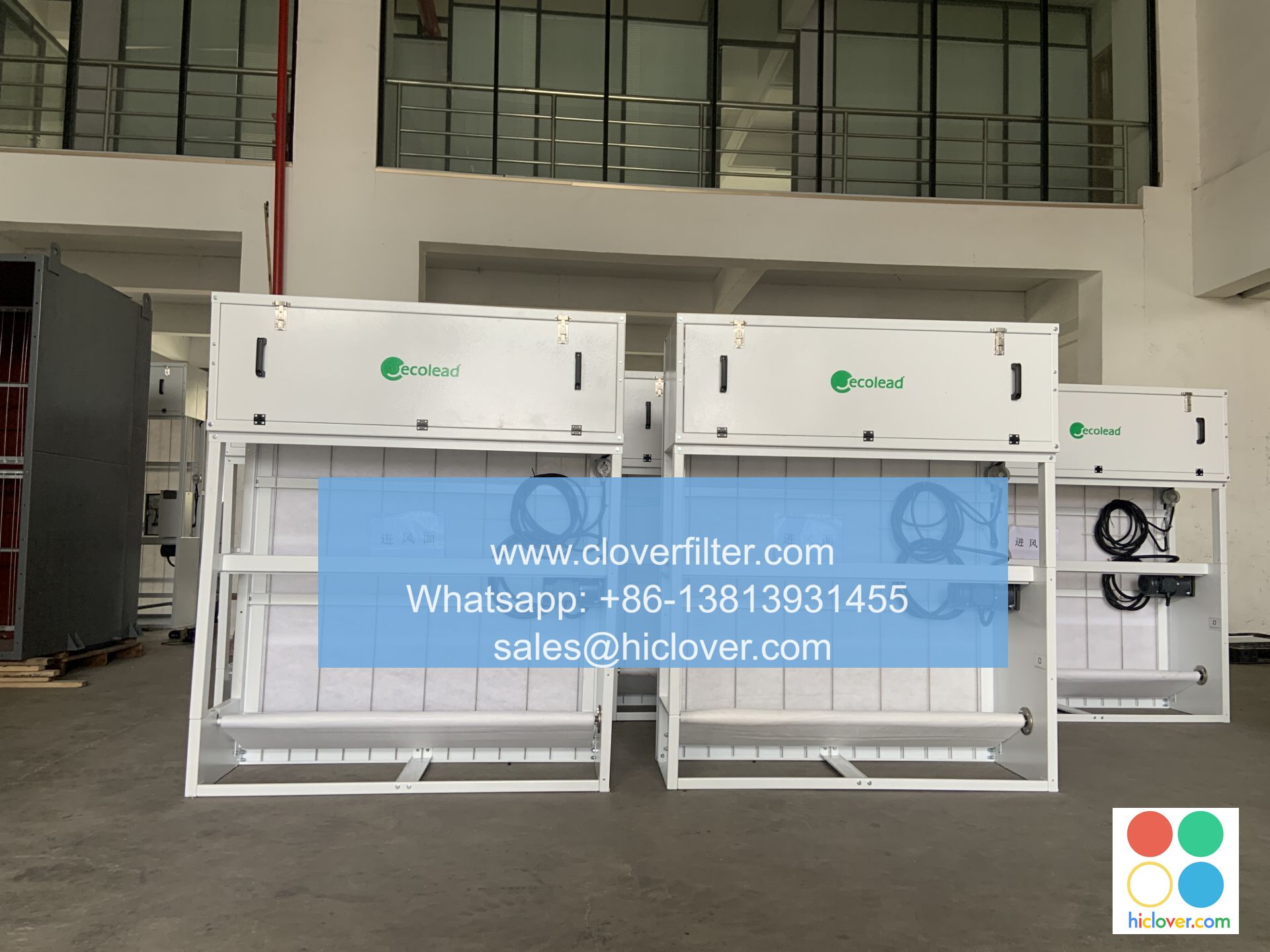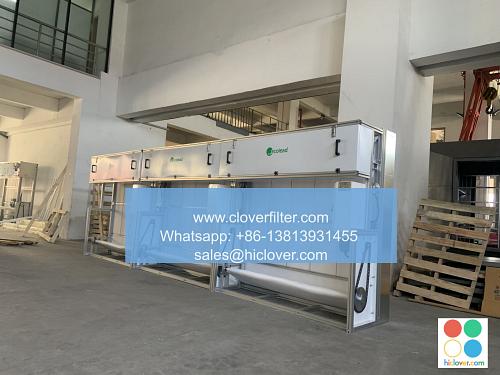Optimizing Lab Performance: The Impact of Automatic Roll Air Filters on Medical Research at McGill University

Medical research institutions, such as McGill University, rely heavily on maintaining a contamination-free and stable environment to ensure the accuracy and reliability of their experiments. One crucial aspect of achieving this is through the implementation of advanced air filtration systems, specifically automatic roll air filters. In this article, we will explore the significance of these filters in optimizing lab performance and their impact on various medical research applications.
Introduction to Automatic Roll Air Filters
Automatic roll air filters are designed to provide a continuous supply of clean air, removing airborne contaminants and particles that can compromise experimental results. These filters operate by automatically rolling out a new section of filter media as the old one becomes saturated, ensuring a consistent level of air quality. This technology has revolutionized the way labs maintain their environments, providing a high level of efficiency and reliability.
Advantages of Automatic Roll Air Filters in Medical Research
The integration of automatic roll air filters in medical research settings, such as those found at McGill University, offers several key benefits, including:
– Enhanced Air Quality: By continuously removing airborne contaminants, these filters help maintain a clean and stable environment, which is critical for sensitive experiments.
– Increased Efficiency: The automatic nature of these filters reduces the need for manual intervention, allowing researchers to focus on their work rather than air quality management.
– Reduced Contamination Risk: Automatic roll air filters significantly minimize the risk of contamination, which is paramount in medical research where even the smallest impurity can invalidate results.
Application Areas in Medical Research
The application of automatic roll air filters is diverse, covering various medical research areas, including:
– Cell Culture and Tissue Engineering: These filters are crucial in maintaining the sterility needed for cell cultures and tissue engineering experiments, where contamination can lead to experiment failure.
– Virology and Microbiology: In the study of viruses and microorganisms, a contamination-free environment is essential to prevent cross-contamination and ensure the accuracy of experimental results.
– Genomics and Molecular Biology: The precision required in genomics and molecular biology research makes the use of automatic roll air filters vital in maintaining an environment free from airborne contaminants that could interfere with DNA and RNA experiments.
Case Study: McGill University
McGill University, a leading institution in medical research, has seen significant improvements in lab performance since the implementation of automatic roll air filters. Researchers have noted a reduction in experiment contamination rates and an increase in the reliability of their results. This improvement in air quality has also led to better working conditions for staff and students, enhancing overall productivity.
Conclusion
In conclusion, the integration of automatic roll air filters into medical research laboratories at institutions like McGill University has a profound impact on optimizing lab performance. By ensuring a clean, stable, and contamination-free environment, these filters play a critical role in advancing medical research across various application areas. As research continues to evolve, the importance of such technologies will only continue to grow, underlining their necessity in modern medical research facilities.
Future Perspectives
Looking ahead, the development and implementation of even more advanced air filtration technologies will be crucial. The potential for integrating AI and IoT into air filtration systems to predict and adapt to changing lab conditions offers exciting possibilities for further optimizing lab performance. Moreover, the sustainability of these systems, in terms of energy efficiency and filter disposal, will become increasingly important as institutions strive to reduce their environmental footprint.
Recommendations for Implementation
For institutions considering the implementation of automatic roll air filters, several key factors should be considered:
– Assessment of Current Air Quality: Conduct a thorough assessment to understand the current state of air quality in the lab.
– Selection of Appropriate Filters: Choose filters that are tailored to the specific needs of the research being conducted.
– Training and Maintenance: Ensure that staff are adequately trained in the operation and maintenance of the filters to optimize their performance and longevity.
By following these recommendations and staying at the forefront of air filtration technology, medical research institutions can significantly enhance their lab performance, contributing to breakthroughs in medical science and ultimately, to improved human health outcomes.

